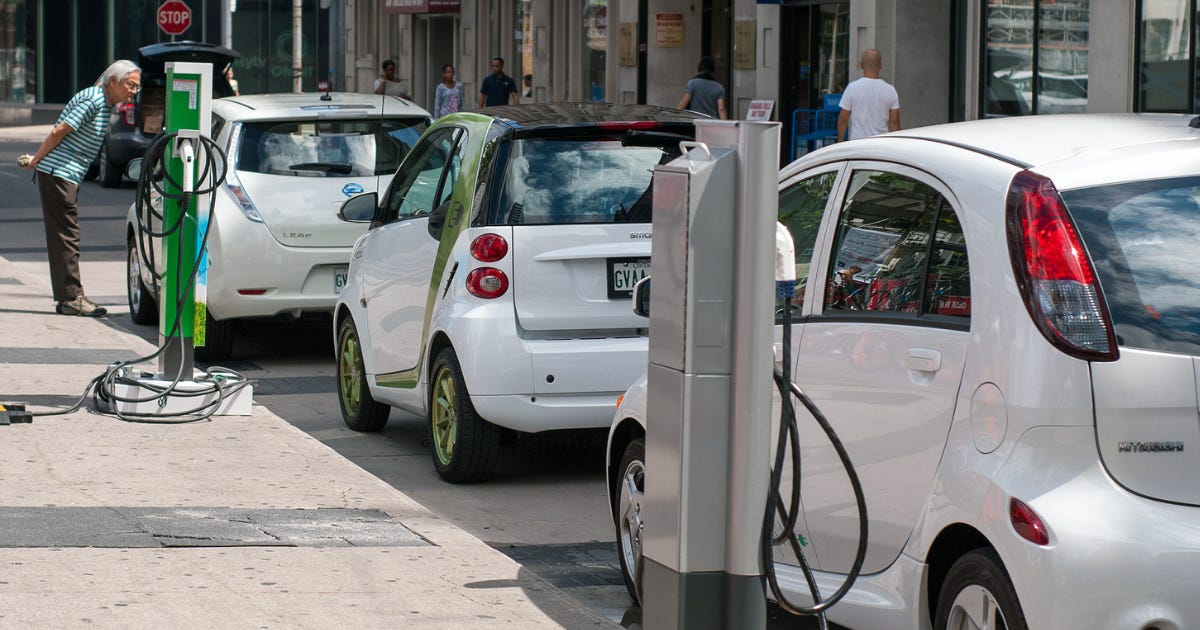OP-ED: You can’t eat an electric vehicle
Dr. Sylvain Charlebois says, "Farmers don’t need political theatre. They need access to markets. Ottawa’s duty is not to make gestures, but to make sense."
By Dr. Sylvain Charlebois
China rarely telegraphs its diplomatic intentions so openly. Yet, in recent days, Beijing has done just that — signalling that if Canada were to lift its tariffs on Chinese electric vehicles, China would, in turn, remove the punitive tariffs it has placed on Canadian agricultural exports such as canola. In the often-opaque world of trade diplomacy, such clarity is unusual. And in this case, it’s an unmistakable invitation to de-escalate.
So far, Ottawa seems unwilling to take it.
This trade conflict began not in the fields of Saskatchewan or the ports of Vancouver, but in the politics of the global auto industry. In July, Canada joined the United States and the European Union in imposing 100 per cent tariffs on Chinese electric vehicles, citing concerns over industrial overcapacity, state subsidies, and unfair competition. It was, in essence, an act of solidarity — a symbolic gesture to align with Western allies rather than a measure grounded in Canada’s domestic economic reality.
After all, Chinese-made EVs make up less than 2 per cent of vehicle sales in Canada. There was no surge threatening Canadian automakers. The tariff served a diplomatic purpose, not an industrial one.
Beijing’s response, however, has been deeply economic — and devastating. In March, China retaliated by imposing 100 per cent tariffs on canola oil, canola meal, and peas, along with 25 per cent tariffs on pork and seafood. Then, in August, it escalated further by slapping a 75.8 per cent anti-dumping duty on Canadian canola seed — effectively closing the door on one of Canada’s most important export markets.
The financial fallout has been severe. Within two weeks of the August announcement, Canadian farmers were estimated to have lost $140 million. Canola futures dropped roughly $40 per tonne, and the Canola Council of Canada projects total damages could reach $1.5 billion this year alone.
Before this dispute, China purchased over $5 billion worth of Canadian canola products annually, accounting for nearly 40 per cent of our total exports in that category. That trade has now all but vanished. Prairie producers are scrambling to redirect shipments to Japan, Mexico, and the United Arab Emirates — but at heavily discounted prices.
Meanwhile, the sector’s broader economics are already strained. In 2024, net cash income for Canadian farms fell by 15 per cent, to $19.7 billion, while interest expenses surged almost 29 per cent. Add tariffs that block billions in exports, and the math simply doesn’t work.
Ottawa has responded with limited support: higher AgriStability coverage (from 80 to 90 per cent), expanded interest-free cash advances, and loan deferrals through Farm Credit Canada. These programs offer temporary liquidity but do not restore lost markets. They keep farmers afloat but don’t help them sell their crops.
Canada’s stance makes little sense. The country is defending a fledgling EV policy that protects virtually no domestic manufacturing base while undermining one of its most globally competitive sectors — agriculture. It is, frankly, a case of policy misalignment: protecting an industry that barely exists while punishing one that feeds the world.
And now, the way out is staring us in the face. China’s message, through its ambassador, is clear: remove your EV tariffs, and we will remove ours. For Beijing to make such a conditional offer publicly is extraordinary. In diplomatic language, that’s as close as one gets to a negotiated exit without a formal agreement.
By refusing to engage, Ottawa is not defending Canadian sovereignty — it is sacrificing Canadian prosperity. Every day this dispute drags on, farmers lose income, communities lose stability, and Canada loses credibility as a reliable trade partner.
The potential upside of a policy shift is enormous. Dropping the EV tariffs would cost Canada virtually nothing — the affected imports represent a rounding error in national trade data — but it could immediately reopen up to $5 billion in annual canola exports and relieve pressure on the broader agri-food sector.
Canada’s role in global trade has always been built on pragmatism, not ideology. Our competitive advantage lies in feeding the world, not in fighting symbolic battles over industries we don’t have.
Farmers don’t need political theatre. They need access to markets. Ottawa’s duty is not to make gestures, but to make sense.
China has made its position clear. Now it’s Canada’s turn to act — with reason, not rhetoric.
— Sylvain Charlebois is director of the Agri-Food Analytics Lab at Dalhousie University, co-host of The Food Professor Podcast and visiting scholar at McGill University.



Sylvain tells it like it is. Nothing has changed with our federal government. Still incompetent, still ignoring anything resembling common sense, still picking winners and losers according to their own ideology. Pretty much sums up this country over the last ten years, with no relief in sight, and yet some feel content with our situation. This nightmare has to end sometime. Doesn't it?
China IS NOT our friend.
FULL STOP!!!
That simple.
Beware.